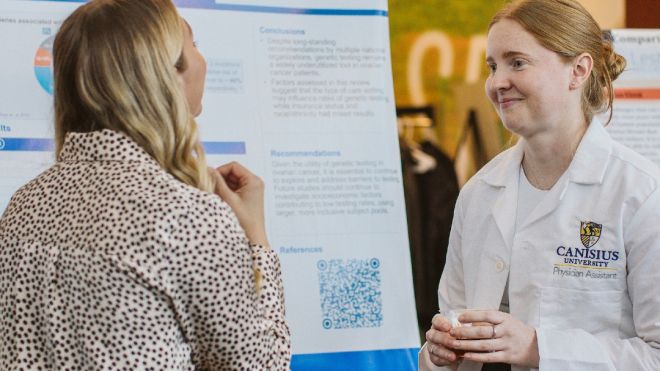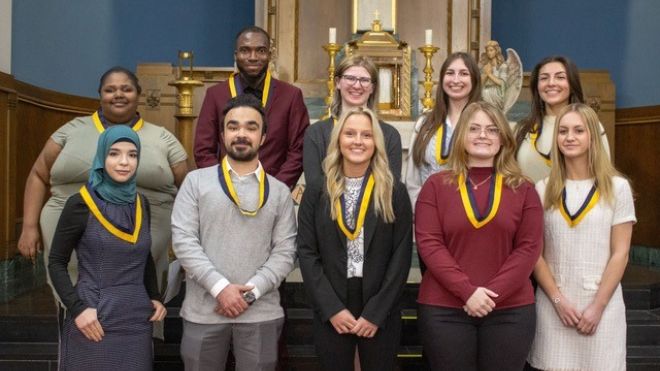Five Canisius students spent two weeks examining the rainforests, jungles, and rivers of Sumatra, Indonesia, during a trip offered by the Canisius Ambassadors for Conservation (CAC). Three of the students study in the Canisius Animal Behavior, Ecology and Conservation (ABEC) Program and two are graduate students in the Anthrozoology Program. Students traveled under the guidance of Michael Noonan, PhD, professor of animal behavior and ABEC director. They include:
- Ashley T. Holmes ’15, a sophomore ABEC major
- Matthew K. LeFauve ’14 a junior ABEC major
- Elizabeth M. George ’15, a sophomore ABEC major
- Alison M. Kennedy-Benson,’13, Master’s Program in Anthrozoology
- Leslie R. Lantz ’13, Master’s Program in Anthrozoology
The students traveled to Indonesia as a continuation of their studies of wildlife conservation worldwide. They visited three national parks: Way Kambas National Park on the island of Sumatra, Ujung Kulon National Park on the island of Java and Tanjung Putting National Park on the island of Borneo.
During the trip, they made first-hand observations of critically endangered primates such as the Proboscis Monkey, the Siamang and the Bornean Orangutan. They also examined the palm-oil, mining, and human population issues that lead to deforestation.
“My favorite parts of the trip were the experiences of hearing the hauntingly beautiful duet from a pair of gibbons, and seeing the contemplative eyes of an orangutan. It has forever changed my life,” says LeFauve. “By learning all we can about the magnificent ecosystem of the Indonesian rainforest, we can be more conservation-minded to ensure that these life-changing experiences endure into the future.”
“The good news is that our Canisius students also planted new trees as participants in a re-forestation program, collected data on the positive role that ecotourism is playing in promoting conservation, and assessed a widespread positive attitude toward wildlife on the part of Indonesian citizens,” adds Noonan.
Back in Western New York, these Canisius Ambassadors for Conservation are developing multimedia materials to help spread the word about the tropical rainforests of Indonesia and the wonderful species that are found there.
The objective of CAC is to develop Canisius University students into effective advocates for wildlife. As Canisius Ambassadors for Conservation, they convey their knowledge and passion about the natural world to others in a number of different formats. The program promotes wildlife conservation by stimulating community-wide affection for certain animal species, and then using those species as anchors to which wider ecological lessons are tied. Canisius University students make presentations to thousands of school children and their accompanying parents and teachers. To find out more information about CAC click here.
The largest program of its kind in the U.S., the Canisius ABEC program educates students about the science of animal behavior as well as the ethical and moral considerations involved in these fields. The major offers broad training in the nature of animals, their behavioral ecology, and mankind’s relationship to them. It is designed for students who wish to engage in a rigorous course of study on the behavioral biology of animals, and one in which they critically examine issues pertaining to animal welfare and wildlife conservation. A central theme underlying this program is the use of scientific knowledge about animal behavior for the benefit of animal welfare and wildlife conservation. To find out more information about ABEC click here.
Created with Admarket's flickrSLiDR.



